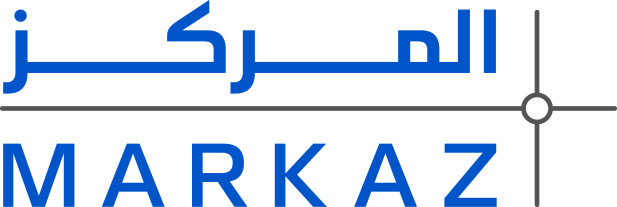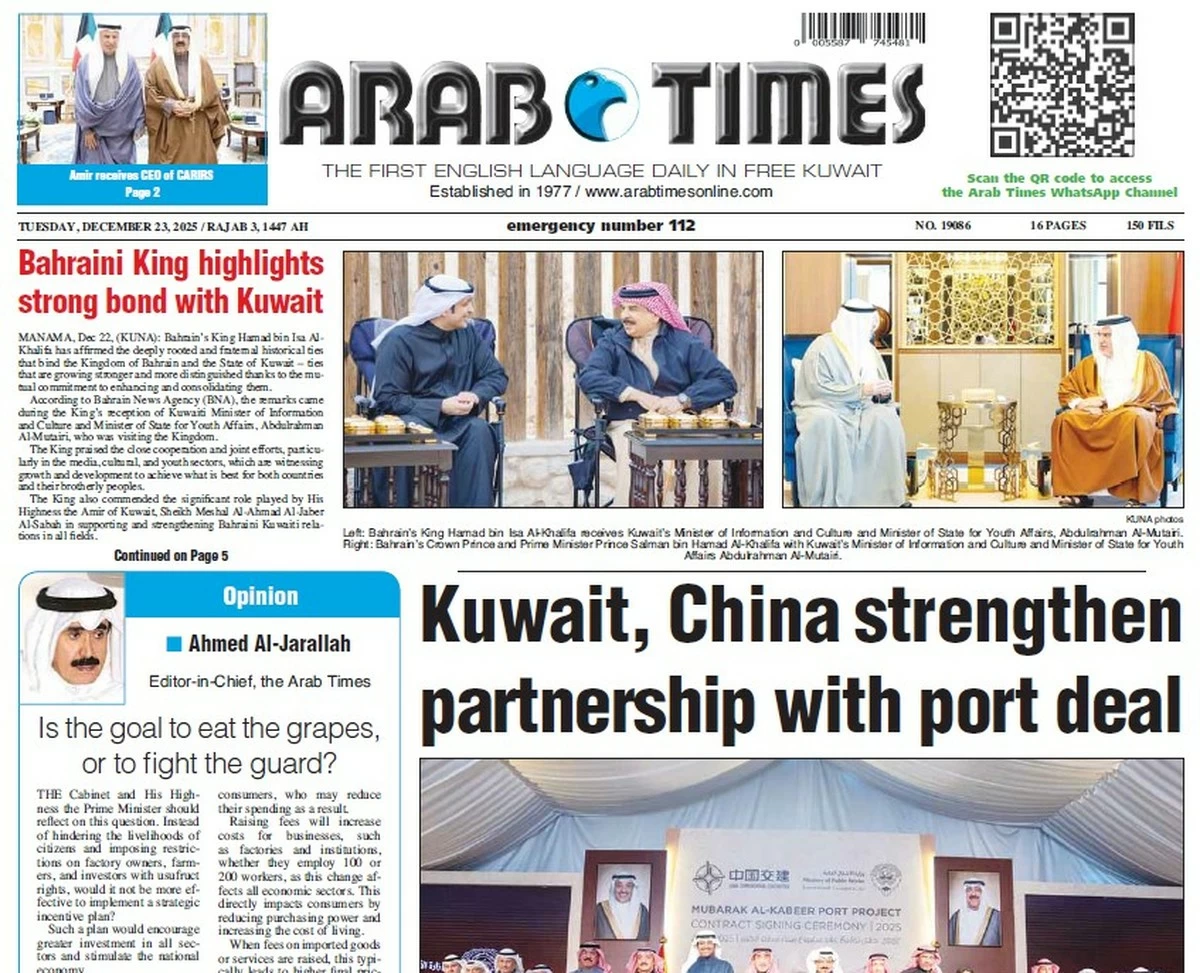04/11/2023
04/11/2023

Kuwait City, Nov 4: Kuwait Financial Centre “Markaz” released its Monthly Market Review report for the month of October 2023. During the month, Global and GCC equity indices witnessed a sharp fall due to the rise in geopolitical tensions in the Middle East and fears of further monetary tightening by the U.S Fed.
Kuwait markets were down for the month in line with global markets, due to the negative sentiment as investors feared rise in geopolitical tensions could disrupt the global economy. Kuwait’s All Share Index posted a monthly fall of 5.2%, driven by a broad-based fall of all sectoral indices except Technology and Insurance. This is the steepest monthly decline witnessed so far in 2023. Banking stocks were weak, with KFH (Kuwait Finance House) and NBK (National Bank of Kuwait) registering a monthly decline of 6.7% and 3.2%, respectively. KFH reported a net profit of KD 461.5 million (USD 1.5 billion) in 9m 2023, an increase of 124.3% y/y. Shares of KFH fell sharply despite recording strong profits as negative economic sentiment led to profit booking. Alimtiaz Investment Group and National Investments Co. witnessed a steep fall among Premier Market stocks, declining by 19.2% and 18.4% respectively during the month.
GCC Markets were also negative due to rising geopolitical risks and a decline in oil prices. The S&P GCC composite index fell by 4.8% for the month. Qatar and Dubai equity indices fell the most at 7.1% and 6.9% respectively during the month. Dubai’s real estate stocks witnessed a sharp reversal in performance, with Emaar Properties and Aldar Properties falling by 16.8% and 9.7% respectively. Despite the fall, Dubai remains the best performing GCC market in 2023 so far with a YTD return of 16.2%. Abu Dhabi and Saudi equity indices fell 4.5% and 3.3% respectively. The fall of Saudi equity index was fueled by the World Bank’s downward revision of economic growth in 2023 on the back of oil production cuts and lower prices. GCC blue-chip stocks were weighed down by the negative market sentiment despite positive stock-specific news. Saudi Aramco fell 4.9% during the month, despite announcing the acquisition of a strategic minority stake in Midocean Energy for USD 500 million. Although Qatar National Bank posted strong earnings for Q3 2023, the stock fell 3.3% for the month. The bank reported an 8% y/y increase in net profits and above the consensus estimates by Refinitiv.
Global and U.S. markets were also negative due to fears of persistent inflation and uncertainty over energy prices. The MSCI World index and S&P 500 indices fell 3.0% and 2.2% respectively in October. Investor sentiment was weighed down by strong U.S GDP growth in Q3 2023 exceeding market expectation, which could possibly lead to higher inflation and a higher possibility of another rate hike in the next Fed meeting. The MSCI EM index fell by 3.9% for the month led by Chinese stock index (-2.9%).
During the month, Kuwait has announced intentions to invest USD 410 billion in its hydrocarbon sector and is expected to increase crude output to 3.65 million barrels per day by 2035. Domestic credit in Kuwait increased by 0.4% m/m in September and 0.8% on YTD basis driven by rise in business credit. The World Bank expects the UAE's economy to expand by 3.4% y/y in 2023 and 3.7% y/y in 2024, compared to earlier forecasts of 2.8% y/y (2023) and 3.4% y/y (2024). This can be attributed to the robust growth of travel and tourism, aviation, hospitality, real estate, trade, and logistics sectors. Fitch ratings upgraded Oman’s credit rating to BB+ supported by reduction in gross debt levels as revenues from oil revenue were used to pay off domestic debt.
According to Fitch ratings, the value of Sukuk issuances from the GCC, Malaysia, Indonesia, Turkey, and Pakistan in Q3 2023 fell by 12.3% y/y to USD 51.7 billion, driven by the fall in issuances from GCC sovereigns. Higher oil prices reduced the funding needs for GCC sovereigns, leading to a fall in the value of issuances.
The yield on the 10-year U.S. Treasury note crossed 5% during the month for the first time since 2007, after the U.S. Fed chair stated that inflation is still high, indicating further monetary tightening. However, yields mildly eased to close at 4.88% at the end of the month after subsequent releases in U.S GDP and Unemployment data. After increasing interest rates 10 consecutive times, the European Central Bank left its key deposit rate unchanged at 4.0% in October and reiterated that maintaining the rate for a long period would help to bring inflation down to the target of 2%.
Oil price settled at USD 87.4 per barrel, recording a monthly loss of 8.3%. Oil prices fell despite geopolitical tensions in the Middle East owing to the partial lifting of the Russia export ban coupled with concerns over global oil demand. Investor fears over the possibility of U.S. Fed raising rates by more than 25 bps have also led to concerns over future oil demand. Gold price crossed $2,000/oz. during the month and closed with a 7.3% monthly gain in October due to flight to safety. Natural gas prices rose sharply by 22.1% during the month as weather forecasts in the U.S. and Europe indicated a potential rise in demand for heating.
Real estate sales continued their upward momentum in UAE driven by robust demand from Dubai and Abu Dhabi, as per CBRE. In Abu Dhabi, average apartment prices witnessed an increase of 0.9% in the year to September. In Dubai, the average residential prices rose by 19.6% during the period. The elevated levels of activity coupled with the lack of upcoming stock in both Abu Dhabi and Dubai is likely to drive price growth in the near term. The value of real estate sales in Kuwait declined during Q3 2023 to KD 800 million. Residential property sales experienced a fall, reaching KD 363 million in Q3 2023 due to a reduction in the number of transactions.
The outlook for global equity, commodity, and fixed income markets for November hinges on two major factors – i) Geopolitical tensions in the Middle East and ii) indications from the upcoming U.S. Fed meeting. Any further escalation in geopolitical tensions is likely to have a negative impact on risky assets, and lead to a surge in safe haven assets like Gold and the U.S. Dollar. Markets will also keenly await further indications from the U.S. Fed regarding the end of the rate hike cycle and the longevity of interest rates remaining at a high level.


